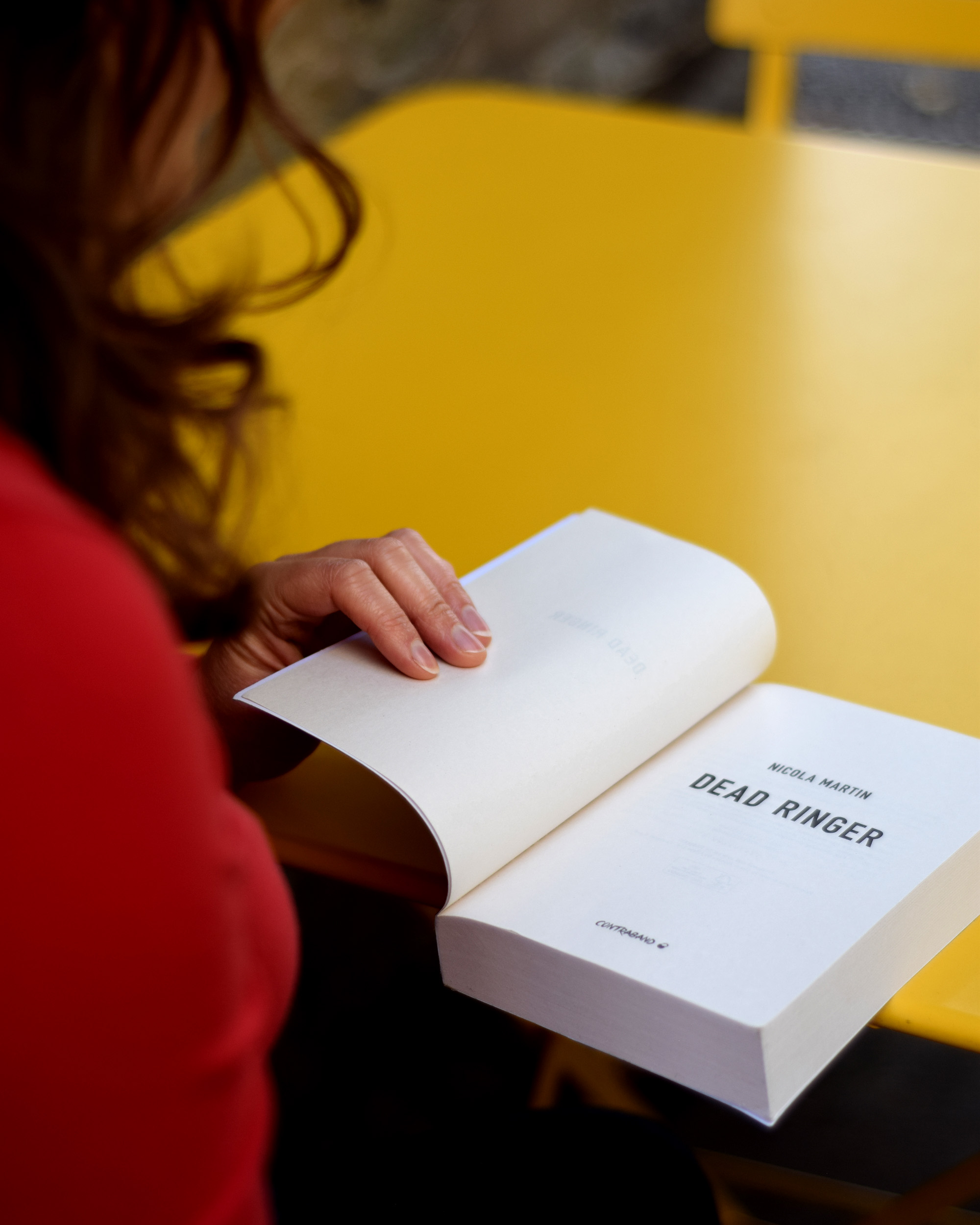5 ways to make your fiction unputdownable
Even quiet stories can (and should) have that gotta-keep-reading quality to them. But how can we as writers make sure our novels and short stories are compelling the whole way through?
I’m going to use the C word here. Gulp. I’m going to talk about making fiction commercial.
‘Commercial’ can feel like a dirty word when it comes to writing, especially for any writer who considers themselves literary. Yet commercial/literary isn’t binary; it’s a spectrum. We all exist somewhere on the scale between ‘pure literary’ and ‘pure commercial’, often moving back and forth along the spectrum for different writing projects.
What’s more, I believe all writers can benefit from nudging their fiction closer to the commercial end of the spectrum. After all, ‘commercial’ simply means ‘appealing to a lot of readers’. And we all want more readers, don’t we?
Here are some tips for making your fiction unputdownable, without compromising your integrity.
-
Figure out your genre
 Many writers will ‘um’ and ‘ah’ when asked what genre they’re writing in. I know the feeling. If you’d asked me that question a few years ago, I might have said, ‘uh, adult fiction’?
Many writers will ‘um’ and ‘ah’ when asked what genre they’re writing in. I know the feeling. If you’d asked me that question a few years ago, I might have said, ‘uh, adult fiction’?
Adult fiction is not a genre! *facepalm*
Broad genres include: mystery, thriller, action-adventure, romance, women’s fiction, fantasy, sci-fi, children’s, YA, and literary fiction. (Yes, literary fiction is a genre.)
The problem for many new writers is that they’re writing ‘between genres’. Their story has a mix of romance and literary fiction elements, for example. This instantly makes it less commercial.
Why?
Readers want to know what they’re picking up. If it’s a romance, they want plenty of swoon-y moments and a happily-ever-after. A novel that’s a mix of romance and literary fiction may not offer that experience.
For this reason, I recommend writers pick a primary genre and tweak their story accordingly. It’s not a case of jettisoning the secondary genre. It should simply be placed in the background, so it’s clear to readers what type of novel they’re getting.
-
Think about reader expectations
Once you’re firm on your primary genre, it becomes easier to lean in to reader expectations.
 This may mean taking off your writer hat and thinking like a reader for a while. For example, what do you look for in a good mystery? Personally, I like an instant hook (someone’s been killed in mysterious circumstances); a wide array of suspects; plenty of twists and secrets-uncovered.
This may mean taking off your writer hat and thinking like a reader for a while. For example, what do you look for in a good mystery? Personally, I like an instant hook (someone’s been killed in mysterious circumstances); a wide array of suspects; plenty of twists and secrets-uncovered.
Now compare your list of reader-expectations to what your own story’s delivering. Maybe there aren’t enough suspects, or maybe the secrets-uncovered aren’t juicy enough.
If this is the case, consider tweaking your plot and pacing so that it better fits with what readers expect. This will automatically make it more compelling.
I was able to add much more juice to my psychological thriller, Dead Ringer, when I started thinking about reader expectations.
-
Embrace emphatic endings
Read any of my early stories and you’ll find they all have meandering, ‘open’ endings. There’s nothing wrong with this, of course. Open endings are a staple of literary fiction.
For most readers, however, open endings are frustrating. A typical reader wants to close the book with a sense of satisfaction: the quest is complete; the killer is in custody; the lovebirds are living in perfect bliss.
It may sound silly, but I actually had to force myself to start writing happy endings. If you’re a bit of a snob like me, they can feel contrived. However, if a happy ending is a key part of your genre (e.g. romance), you don’t have a choice: you HAVE to write it.
Not every story demands a happy ending, of course. In some thrillers, the killer gets away scot-free. But the ending is emphatic.
The reader deserves answers (don’t get me started on mysteries that conceal the identity of the killer…). There needs to be some sort of definite conclusion, even if it’s an unhappy one.
-
Include sensory pleasures
 Ask a writer what they’re proudest of in a particular story and they might say: ‘oh, I feel like I nailed the theme I was going for’, or ‘I was pleased with the imagery woven throughout the story’.
Ask a writer what they’re proudest of in a particular story and they might say: ‘oh, I feel like I nailed the theme I was going for’, or ‘I was pleased with the imagery woven throughout the story’.
Ask a reader to describe what they liked about the story and they’re likely to say: ‘it was set in a cute country village; I’d love to go there’, or ‘the party they attended sounded jaw-dropping’.
Most readers are looking for escapism. They might appreciate your craft on a subconscious level, but what they really want from a story is a vicarious thrill.
Don’t underestimate how much setting and sensory pleasures can help sell a story. Lavish party scenes, sumptuous meals, picture-perfect villages, heart-in-your-mouth helicopter rides… all these and more can help your reader feel like they’re taken a vicarious vacation. So don’t skimp on them.
-
Stuff happening on every page
Writers, by definition, tend to be fast readers. They can read a chapter in ten minutes. But remember that it may take your readers half an hour or more to read that same chapter. So that means there’s no excuse for a boring chapter.
Make sure there’s stuff happening on every page of your novel. Easier said than done, right? It’s true that a novel where every page is compelling is near impossible to accomplish, but it doesn’t hurt to strive for it.
That doesn’t mean throwing in random explosions or table-flipping arguments for the sake of it. It means cutting the chaff, minimising the dull stuff, and delving deep into the emotion of each scene to tease out its inherent drama.
Even more recommendations
 Phew. If those tips haven’t made you feel exhausted, here are a few further recommendations:
Phew. If those tips haven’t made you feel exhausted, here are a few further recommendations:
Cliffhangers – As you’re writing, look for moments of suspense (a creak on the stairs; a knock on the door) and play them up, both at the ends of chapters and within the meat of the story.
Shorter chapters – I edited my novel, Dead Ringer, so it had shorter chapters, of about 2,500 words. It instantly made the book feel brisker and breezier. So it’s worth thinking about re-cutting and shortening your chapters.
More dialogue – Dialogue helps to break up long passages of description or summary, making it feel like an easier read. Look for opportunities to drop in at least a snippet or two of dialogue on every page.
Imagine it as a movie – This tip is from Rachel Aaron’s excellent 2k to 10k: How to write faster, write better, and write more of what you love. Imagine your novel as one long visual. Which bits are visually boring? Change them.








One Comment